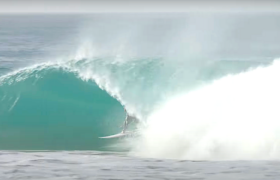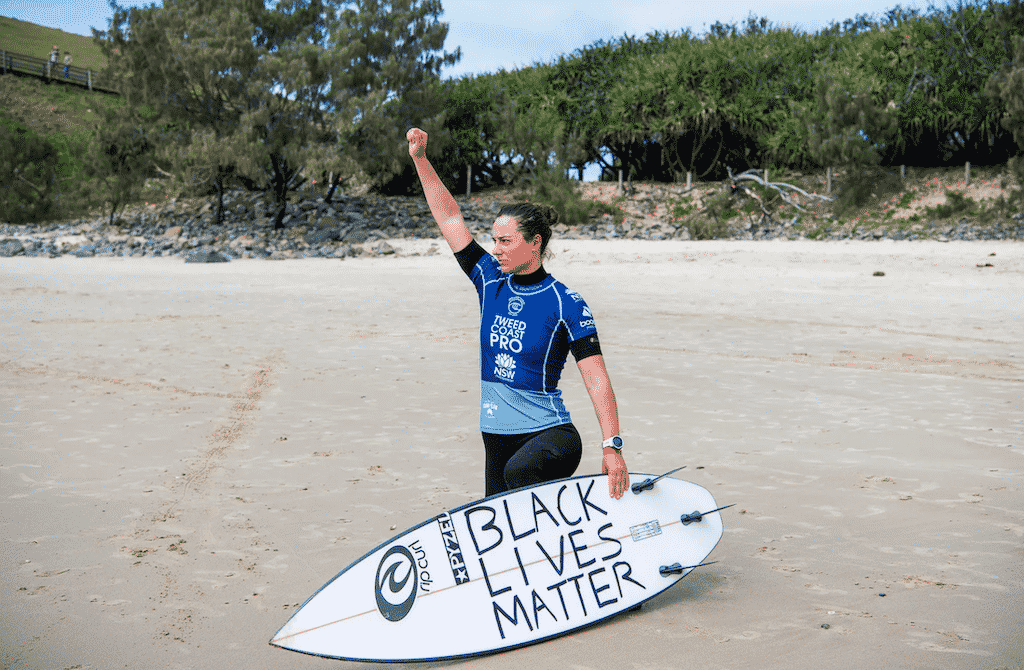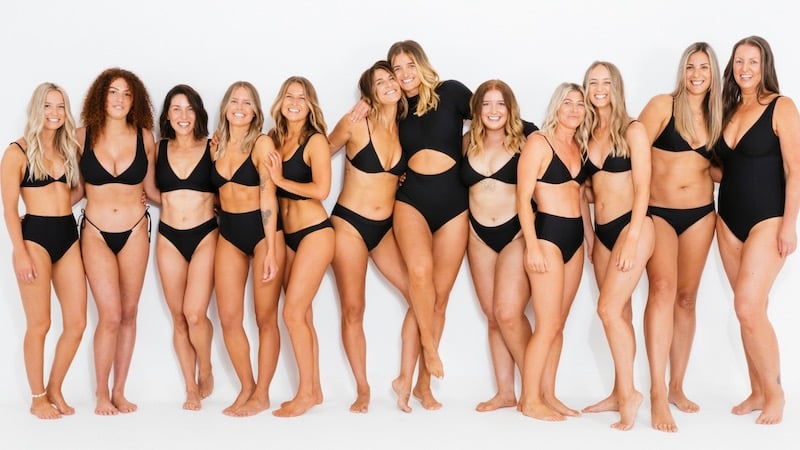From the can’t-win-for-losing department…
Last week, major Australian news outlet The Sydney Morning Herald ran a long piece on Brooke Farris’ elevation to CEO of Rip Curl, smashing fifty-two years of “hypermasculine” history for the company.
Farris was the logical choice for the role, the sharpest tool in that particular shed in Torquay, although the wonderful Neil Ridgway aka Head, the company’s marketing man, was a close-ish second I’d imagine.
Many important passages in the story.
The day Farris was made CEO in August, Wright lost a critical heat at the Corona Open Mexico, meaning she didn’t make the world top five. She had just come back from the beach, crushed and sunburnt, when Farris called. “I was quite upset and emotional,” recalls Wright, who has battled chronic fatigue syndrome since a 2018 bout of influenza. “In a business sense, I didn’t perform. I didn’t make the [Rip Curl WSL Finals], which is their event, their Super Bowl. Most of the time, when you don’t produce for your sponsor, you don’t hear from them, but Brooke was like, ‘You’ve done brilliantly this year – you’re number six in the world. Think of all the challenges you’ve faced.’ She’s someone who actually listens and cares.”
All-embracing, female-friendly marketing is pretty much the antithesis of the alienating surf ads from the early days, such as Billabong’s “Only a surfer knows the feeling” campaign. Surf brand Gotcha also famously ran a series of ads with the slogan, “If you don’t surf, don’t start”. Says Nik Carroll: “It was full-on, like saying, ‘Surfing is for a very special f…ing breed of people, mostly men. Don’t try to walk into this door because it’ll get slammed in your face.’”
For Farris, the challenge will be to preserve the mystique of surfing while making it more accessible, welcoming newcomers and perhaps even creating a fresh surf culture along the way. It’s a tricky balancing act. “You still want to be cool enough to recruit that next generation, but I think by approaching it from a place of inclusivity, people will be attracted to that,” she says. “I’d rather see more people try surfing because … I’ve never met anyone who comes out of the water and says, ‘Oh, I wish I hadn’t gone for a surf.’ You always feel better for it.”
Late in the piece, Rip Curl gets a light kick in the guts for its lack of diversity in its online fit guide, a surprising charge given the company’s diverse use of labor, including the brave North Korean.
There’s also plenty of surfwear made for women – not out of altruism, but because it makes commercial sense. Rip Curl legend has it that co-founder Brian Singer once vowed never to make female surf gear, but women’s products now account for more than 40 per cent of sales globally. Farris talks about “empathy-led design” and has introduced a new online fit guide featuring a bunch of Rip Curl employees – (at this stage, all white) women of different shapes and sizes – wearing an assortment of bikini tops and bottoms, to help customers figure out which swimsuit will fit them best.
Read story here.







